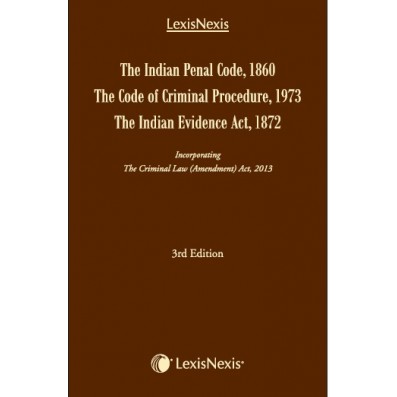The Indian Penal Code, 1860, The Code of Criminal Procedure, 1973 and The Indian Evidence Act, 1872– incorporating The Criminal Law (Amendment) Act, 2013
Availability :
Out of
Stock
₹ 681.10
M.R.P.:₹ 695
You
Save: ₹13.90 (2.00% OFF)
(Inclusive
of all taxes)
Delivery:
₹ 0.00 Delivery charge
Author:
Lexisnexis
Publisher:
Lexis Nexis
Edition:
3rd
ISBN-13:
9789351432029
Publishing Year:
2014-07-01
Weight:
450 g
Language:
English
Book Binding:
Paperback











